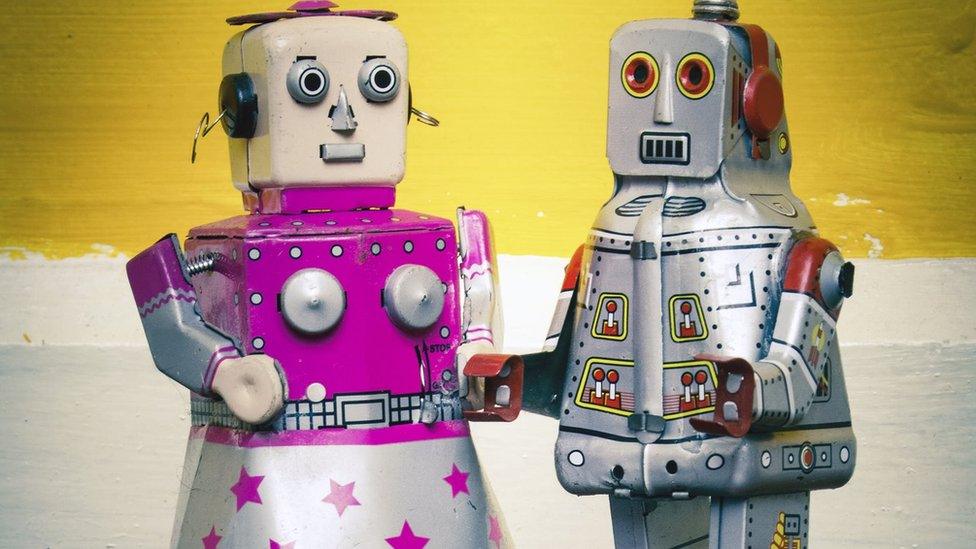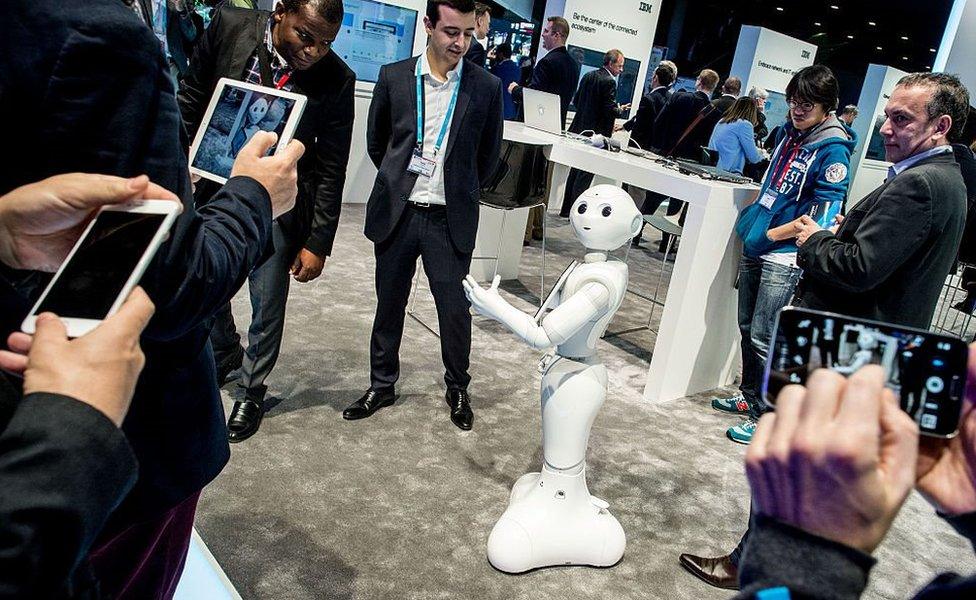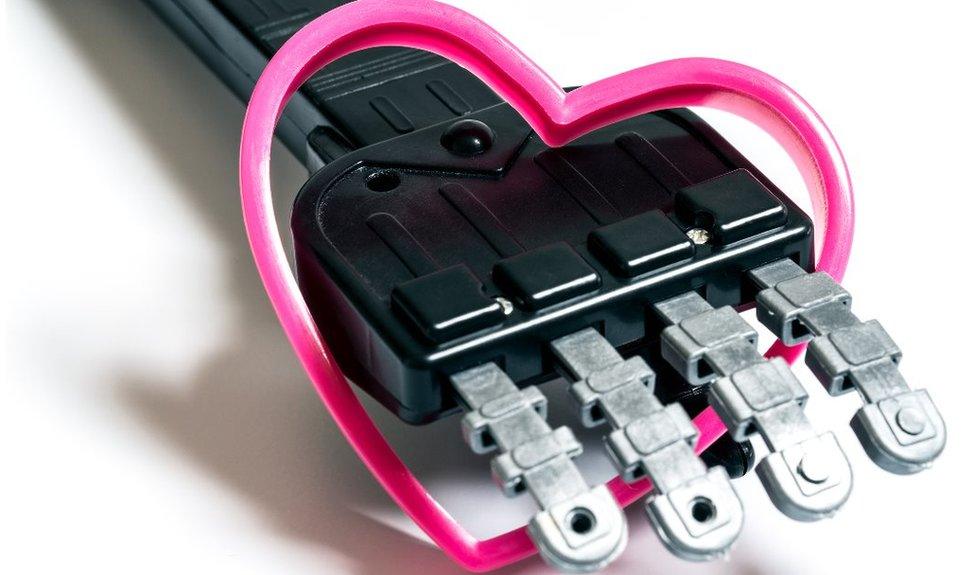Sex robots: Experts debate the rise of the love droids
- Published

For some, sex with robots is a dream but for others it is a soul-destroying nightmare
Would you have sex with a robot? Would you marry one? Would a robot have the right to say no to such a union?
These were just a few of the questions being asked at the second Love and Sex with Robots conference hastily rearranged at Goldsmiths University in London after the government in Malaysia - the original location - banned it.
It has proved controversial, not only to countries with conservative views.
There were no representatives from the sex industry in attendance and no sex robots on display, leading some to question the point of the event.
RealDolls, a Californian-based firm that makes lifelike sex toys, claimed that it would release an artificial intelligence-enhanced sex doll next year.
The launch, if it happens, will be vindication for Dr David Levy, who has long predicted the era of intelligent human-looking robots.

Dr Levy created a stir when his book Love and Sex with Robots was published in 2007
He delivered the conference's closing speech, in which he made the case for android-human intimacy.
"We have companion robots and a partner robot is the logical continuation of the trend," he said.
"In the next 10 years it is perfectly achievable in software to create a robot companion that is everything that people might want in a spouse - patient, kind, loving, trusting, respectful and uncomplaining," he said.
"{However] some enjoy the friction of a relationship and may want to marry an aggressive robot, some people would find that exciting."

One of this year's big TV series - Westworld - explored the idea of people paying to have sex with robots
The idea of a programmable spouse raises ethical questions, particularly as Dr Levy acknowledges that the law would have to recognise a robot as a person.
It might sound far-fetched but, over the course of 2016, a number of high-level panels were set up with representatives from the tech industry, academia and governments to grapple with just such questions.
As to the rights of any future robot, Dr Levy has a simplistic view: "If a robot's behaviour suggests that it wishes to marry, we have to assume that it does."

The Android dream
There is little evidence in the technology industry that current AI is being embodied in anything remotely human.
Companion bots such as Pepper and Nao have human characteristics but look more like friendly toys rather than recognisable humans.
Attempts to make lifelike companions, such as Prof Hiroshi Ishiguro's Geminoid - which is built in his image - are often labelled creepy.

Few people would say Pepper the robot has sex appeal
But there does seem to be a desire to humanise our bots and AIs, such as Amazon's Alexa, and smartphone assistants like Siri, tend to become anthropomorphised by their owners.
But you only have to look to the world of robotic football to see that we are a long way off a robot that can move like a human.


Not everyone thinks the hi-tech sex toys of the future should look humanoid
Elsewhere, the conference was a strange mix of academic papers and heated debate among the audience.
There were a few studies presented in the splendidly titled field of teledildonics - haptic sex toys.
This included Teletongue, an Arduino-based device developed by students at the school of media design at Keio University in Minato, Japan. The idea is to allow long-distance lovers to have physical intimacy.

Sex bots could raise new data security concerns
One partner kisses or caresses an edible lollipop shaped like a body part (the researchers are currently using an ear). The sound and vibration is then transmitted to their lover who would feel and hear the actions.
Prof Lynne Hall, from the University of Sunderland, made the case for more sophisticated sex toys - perhaps linked to virtual reality - as an alternative to robots.
"A robotic paint sprayer doesn't look like a painter, so do we need a sex robot to look like Jude Law?" she asked.
She also suggested that sex could be enhanced by strapping on an exoskeleton packed with data-collecting sensors.
"I'd be happy to give away my data if it made sex better for other people," she explained.

Some experts think people will eventually want to be given the right to marry their robots
Not everyone might be so willing.
A few months back Standard Innovation, which makes intimate products, was sued over claims it had secretly collected data gathered by its smartphone-connected devices. It settled out of court for an undisclosed sum.
The Imagineering Institute - which is heavily involved in the conference organisation - conducted a very small survey on attitudes to robot sex - asking only 30 members of its own labs whether they would be interested in intimate relations with a bot.
The summarised answer appeared to be that, while many thought it was inevitable, few would want it for themselves.

Having sex with robots becomes more problematic if the droids are self-aware
It led one member of the audience to sum up the conference: "We can't agree what a robot is, we can't agree what sex is. We are almost sure that no sex robots currently exist. What we are developing is very crude and almost no-one wants it."
But Goldsmiths senior lecturer Kate Devlin said the event had presented a chance to consider how the industry might develop and the ethical issues it would raise.
"If we have a conscious machine, how will we know it's conscious; how advanced will that consciousness be; what will be our responsibilities towards our creations?" she pondered.
"Will they have rights? Should we build in the idea of consent?"
- Published15 September 2015
